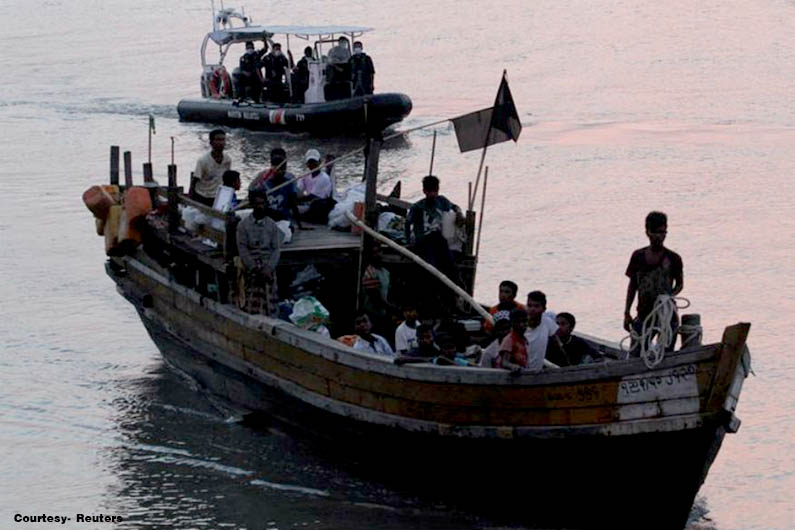Malaysia has become home to more than 100,000 Rohingya refugees. The state constitutes second-highest number of Rohingya after Bangladesh. They have started paying people smugglers for fake travel documents and, most braving the Andaman Sea on rickety boats.
Mohammed Imran once used to be the most influential Rohingya refugees in Bangladesh. Then he chose to fly to Thailand on a fake Bangladeshi passport and get into Malaysia. Importantly, he headed an 18,000-strong camp and represented them on the big stage.
In late 2017, in search for a better life after mass exodus of Rohingya Muslims into Bangladesh, fleeing violence in Buddhist-majority Myanmar, Imran paid traffickers $4,720 to be smuggled into Malaysia. There are many such stories of Rohingya Muslims. Due to this reason Malaysia become home for more than 100,000 Rohingya refugees.
But the hopes of people like Imran had been shattered because of a lack of jobs and harassment by police. Importantly, Rohingyas considered as illegal immigrants in Malaysia. According to a report, some Rohingya refugee appealed to their friends and family to stay in Bangladesh, despite the fact that they live under hostile condition, in Bangladesh. Interestingly, some are thinking of heading back.
Imran, 30, said, “I thought I would have a life here – basic things like freedom to work, freedom to move around without always worrying about being bullied by police.”
After entering Malaysia, many Rohingya spent months in jail. U.N. High Commissioner for Refugees (UNHCR) is working tirelessly with Rohingya refugees. The Organisation had also helped them with their release from jails. Sadly, to earn their living they work odd jobs illegally.
According to UNHCR estimates, only a third of the adult Rohingya in Malaysia are employed. Post-traumatic stress disorder (PTSD) and depression becomes common among them said aid agencies.










